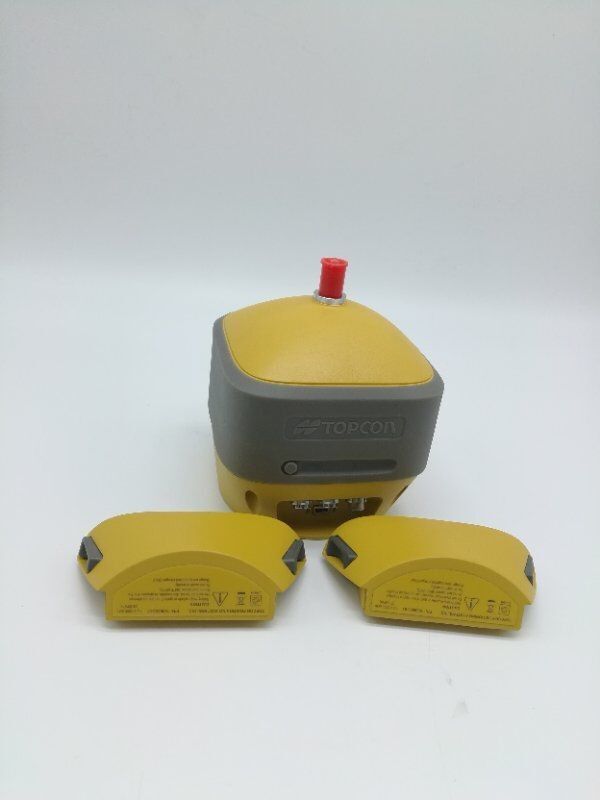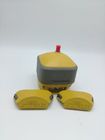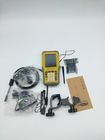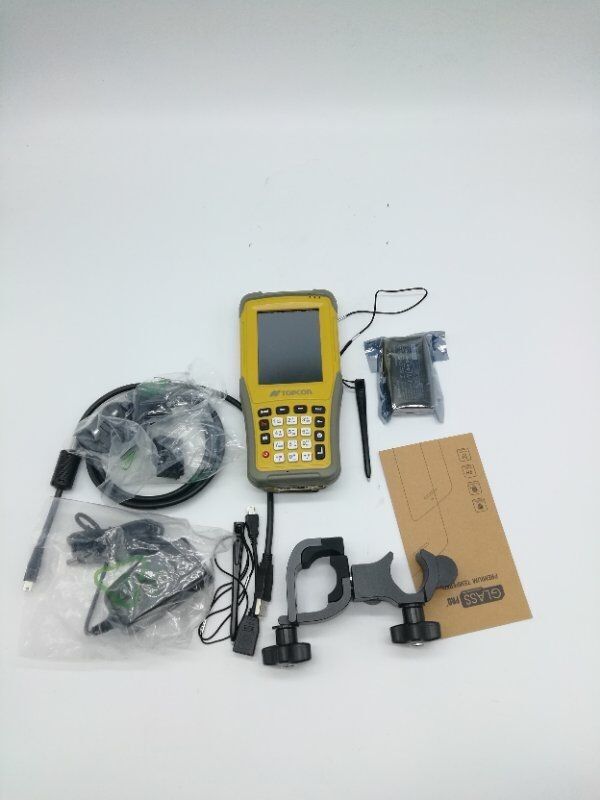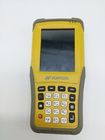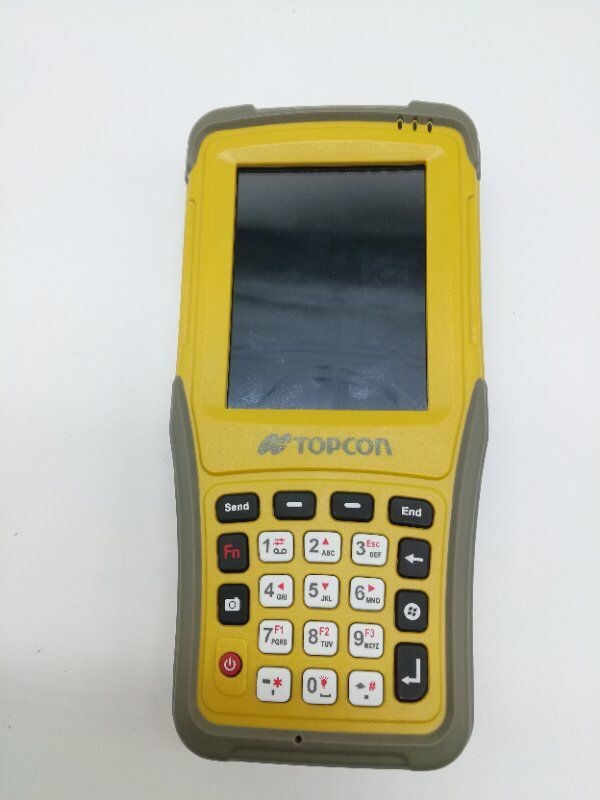| GNSS |
|
Signals Tracked
|
GPS: L1, L1C, L2, L2C, and L5
GLONASS: L1, L2, L3
Galileo*: E1, E5a, E5b, E5AltBOC, E6
BeiDou: B1, B2, B3 with ICD availability
SBAS: L1 C/A, L5 (on supported SBAS satellites)
QZSS: L1 C/A, L1C, L1-SAIF, L2C, L5
L-Band: 1525-1560 MHz (OmniStar and TerraStar) |
Number of Channels  |
452-Channel Vanguard Technology with Universal Tracking Channels capable of All-in-View tracking |
|
Antenna Type
|
Integrated, micro centered Fence Antenna™ with Ground Plane (1) |
| Positioning Performance (2) |
|
Static
|
H: 3mm + 0.1ppm (3)
V: 3.5mm + 0.4ppm (3) |
RTK  |
H: 5mm + 0.5ppm
V: 10mm + 0.8ppm |
|
Data Update/Output Rate
|
20 Hz Standard, upgrades available (to 100 Hz) |
|
Correction format
|
TPS, RTCM SC104 2.x, 3.x**, MSM, CMR, CMR+, BINEX |
|
ASCII Output
|
NMEA 0183 version 2.x and 3.0, RINEX and BINEX |
|
RINEX
|
Onboard RINEX Conversion |
| Communication & Memory |
|
Optional Radio Type
|
Integrated UHF (410-470 MHz), 12.5 kHz spacing (Satel, PDL, TrimTalk protocols)
Integrated Spread Spectrum (915MHz), FH915 & FH915+ protocols |
|
Base Radio Output
|
0.1W to 1.0W, user selectable |
|
Cellular Communications
|
Integrated HSPA Cinterion PXS8 (optional) |
|
Wi-Fi
|
802.11 a/b/g (>20m indoors, 50m outdoors) |
|
Bluetooth®
|
Class 1 LongLink™ (>300m outdoors)
Class 2 (>25m outdoors)
BLE (>2m indoors) |
|
NTRIP
|
Server, Client, Caster |
|
Input/Output
|
Serial, USB 2.0 (Client/Host), 1PPS (combined with Serial A) |
|
Memory
|
Up to 8 GB |
|
Data Logging
|
Up to 8 simultaneous files |
| Environmental |
|
Operating Temperature
|
-40°C to +65°C*** |
|
Humidity
|
100% Condensing (MIL-STD 810G) |
|
Vibration Rating
|
MIL-STD 810G, Method 514.6, Broad band noise (random vibration), along each of 3 axes, Category 4, table 514.6C-IV |
|
Mechanical Shock
|
Mil-STD 810G Method 516.6, along each of 3 axes. Procedure I - Functional Shock, Table 516.6-I, Fig. 516.6-8, accelerative forces up to 40g |
|
Waterproof/Dustproof
|
IP67 per IEC60529 |
|
Drop and Topple
|
2.0m pole-drop onto concrete surface |
| Power |
|
Input Power (External)
|
6 to 28 VDC (ODU-5) |
|
Internal batteries
|
(2x) 3.7V, 2600 mAh each |
|
External Battery
|
7.2 V, 2900 mAh, user replaceable |
|
Operating Time
|
GGD Standalone – 6h
GGD UHF Rover – 4h
GGD UHF Base – 3.5h |
|
Battery charging time
|
< 5h |
|
Power Consumption
|
6 W: minimum (GGD)
8 W: full system tracked
12 W: UHF Base
up to 30 W: during charging |
| Physical |
|
Size
|
131.5mm (H) x 115mm (W) x 115mm (D) |
|
Weight
|
1kg - w/o secondary battery
1.145kg - w/ secondary battery |
|
Ports
|
1 x RS232 (ODU-7), USB Micro A/B 2.0, WHAT ELSE GOES HERE? |
| Notes |
|
Note
|
1. Multiple patents are associated with Fence Antenna technology.
2. Precision in RMS; Subject to multipath anomalies, interference, atmospheric conditions and atypical satellite geometry. GNSS survey best practices must always be applied.
3. Under nominal observing conditions and strict processing methods, including use of dual frequency GPS, precise ephemerides, calm ionospheric conditions, approved antenna calibration, unobstructed visibility above 10 degrees and an observation duration of at least 3 hours (dependent on baseline length). |
|
Note
|
* Support for Galileo signals is incorporated. Positioning solution with these signals will be integrated and made available when the constellation has matured and is ready for commercial use.
** Use of industry standard RTCM 3.x is recommended for optimal performance
*** -40°C to +85°C Storage Temp.
|

 Your message must be between 20-3,000 characters!
Your message must be between 20-3,000 characters! Please check your E-mail!
Please check your E-mail!  Your message must be between 20-3,000 characters!
Your message must be between 20-3,000 characters! Please check your E-mail!
Please check your E-mail! 

